- News
- City News
- dehradun News
- Found by trekkers last year, ancient route to Char Dham that ‘Pandavas took’ to open for public
Found by trekkers last year, ancient route to Char Dham that ‘Pandavas took’ to open for public
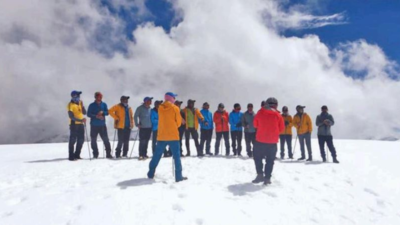
CM Pushkar Singh Dhami released a documentary that was made on the journey and also made details of the route public via a book release. (Photo: SDRF)
DEHRADUN: Eight months after a group of 25 trekkers undertook an expedition to track the ancient Char Dham routes -- considered by many to be 3,000 years old and used by rishis, munis, and the Pandavas -- the Uttarakhand government has now said it was inclined to open it for the public.
Chief minister Pushkar Singh Dhami released a documentary that was made on the journey and also made details of the route public via a book release and said that the government was inclined to "open it for all". He said, "The trek routes will give a new dimension to the state's religious tourism."
 The ancient route has several open rest houses along the way. (Photo: SDRF)
The ancient route has several open rest houses along the way. (Photo: SDRF)
Dhami had flagged off the expedition on October 25, 2021. "This expedition will help us go a long way in opening the traditional trek routes for all. We wanted the hills to prosper and such projects will improve the region's economy," he had said.

The expedition team, comprising trekking experts, personnel from the State Disaster Response Force, and the forest department, started their journey from Rishikesh and took an old "walking route" to all the four shrines, covering a distance of 1,156 km.

They crossed 24 different terrains, considered to be among the toughest in the Garhwal hills, before returning on December 24.

The route that the team tried to track had been "lost" with time and many debate over its antiquity. According to local folklore, several rishis and munis would use it to reach the holy sites.

Some would take the Rishikesh-Bamori-Kathgodam-Bhimtal route, whereas others took a diversion from Naini and then went towards Bageshwar-Adi, Badri-Simli-Karnaprayag, and Chamoli-Badrinath.

Many still believe that route was the "ancient trail" taken by the Pandavas 3,000 years ago, as was mentioned in the Mahabharata. Up until the 1940s, however, when the route was known, pilgrims would start from Haridwar and complete the journey to the Char Dham shrines in 14 days.

They would take a bath at Har-ki-Pauri and go to a priest, who would provide them with a gumasta (guide) that would take them to the dhams. The route was abandoned after motorable roads were built.
The expedition team found several 'chattis' (open rest houses) along the way.
Tourism minister Satpal Maharaj said, "These rest stops had their own significance. If a devotee would forget his belongings at a chatti, people would tell him not to worry as he would find them at the exact spot he left them when he came back. Such was the faith people had."
Chief minister Pushkar Singh Dhami released a documentary that was made on the journey and also made details of the route public via a book release and said that the government was inclined to "open it for all". He said, "The trek routes will give a new dimension to the state's religious tourism."
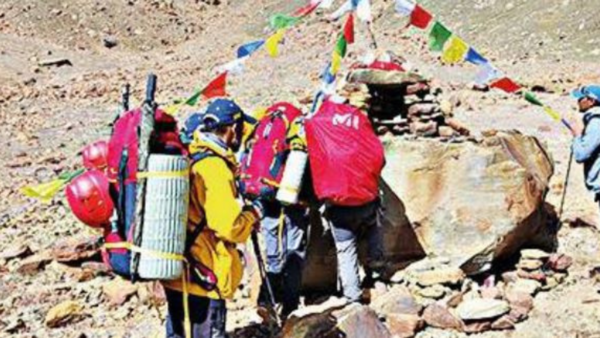
Dhami had flagged off the expedition on October 25, 2021. "This expedition will help us go a long way in opening the traditional trek routes for all. We wanted the hills to prosper and such projects will improve the region's economy," he had said.

The expedition team, comprising trekking experts, personnel from the State Disaster Response Force, and the forest department, started their journey from Rishikesh and took an old "walking route" to all the four shrines, covering a distance of 1,156 km.
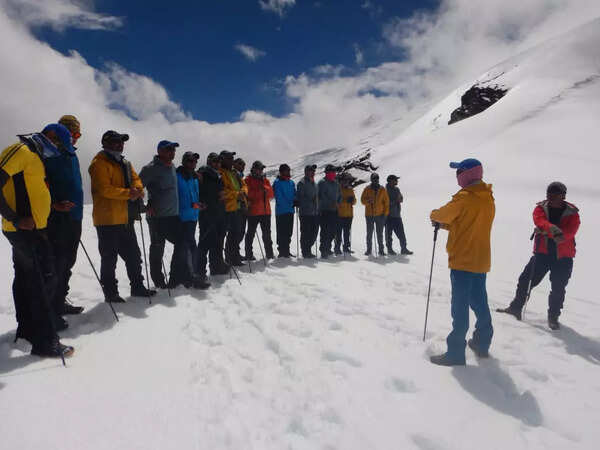
They crossed 24 different terrains, considered to be among the toughest in the Garhwal hills, before returning on December 24.
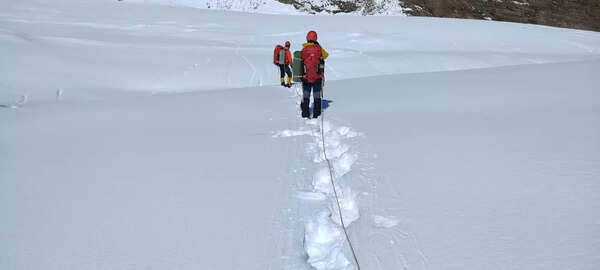
The route that the team tried to track had been "lost" with time and many debate over its antiquity. According to local folklore, several rishis and munis would use it to reach the holy sites.

Some would take the Rishikesh-Bamori-Kathgodam-Bhimtal route, whereas others took a diversion from Naini and then went towards Bageshwar-Adi, Badri-Simli-Karnaprayag, and Chamoli-Badrinath.

Many still believe that route was the "ancient trail" taken by the Pandavas 3,000 years ago, as was mentioned in the Mahabharata. Up until the 1940s, however, when the route was known, pilgrims would start from Haridwar and complete the journey to the Char Dham shrines in 14 days.
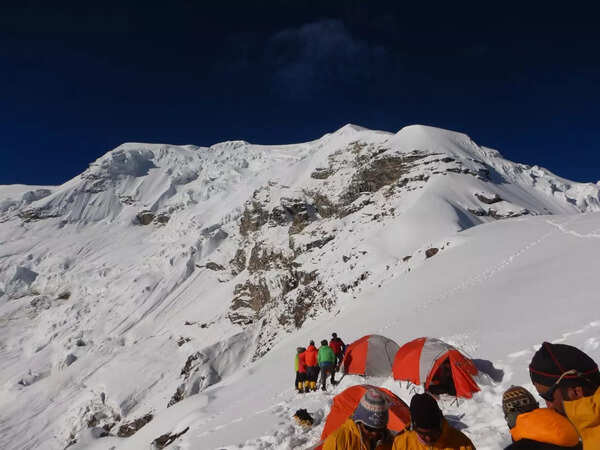
They would take a bath at Har-ki-Pauri and go to a priest, who would provide them with a gumasta (guide) that would take them to the dhams. The route was abandoned after motorable roads were built.
The expedition team found several 'chattis' (open rest houses) along the way.
Tourism minister Satpal Maharaj said, "These rest stops had their own significance. If a devotee would forget his belongings at a chatti, people would tell him not to worry as he would find them at the exact spot he left them when he came back. Such was the faith people had."
FOLLOW US ON SOCIAL MEDIA
FacebookTwitterInstagramKOO APPYOUTUBE

Start a Conversation
end of article










